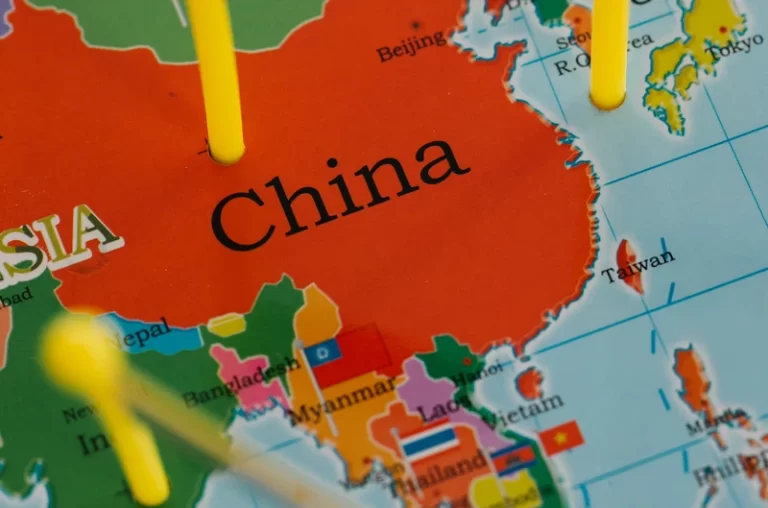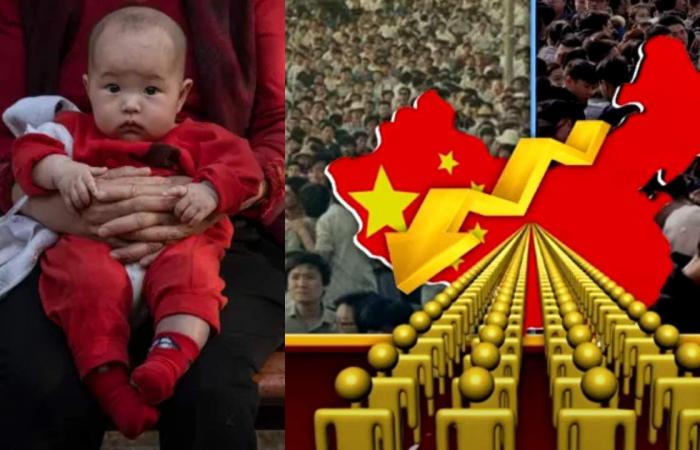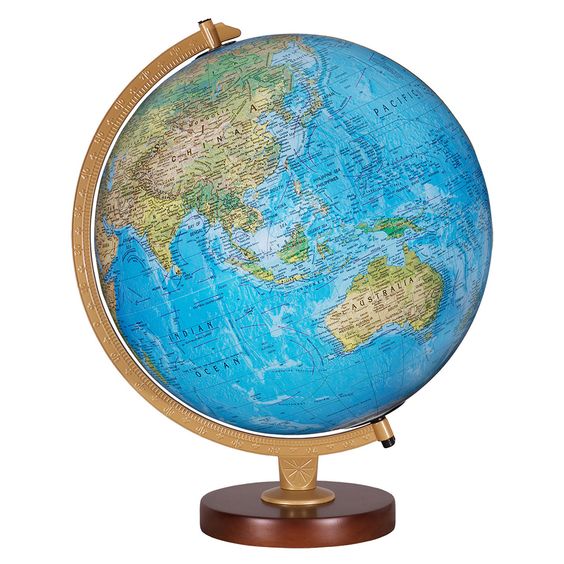
A number of other ineluctable facts will have a profound impact on China, India, Asia and the rest of the world.
By Tom Arms
China is shrinking. India is growing. Sometime this year the sub-continental nation will usurp China as the most populous country on earth.
This and a number of other ineluctable facts will have a profound impact on China, India, Asia and the rest of the world.
Every economy needs workers to produce goods and services. The more workers—especially relatively cheap ones—the faster a country’s GDP grows.
There are other factors at play. China’s pensioner population is rapidly growing. The proportion of retirees has expanded from 37.12 percent in 2010 to 44.14 percent in 2020 which means fewer workers and .greater social care costs. India, by comparison has an average age of 29.
Then there is covid. Xi Jinping’s decision to end his zero covid policy has let loose the deadly virus at the same time as hundreds of millions are travelling for Chinese New Year. To make matters worse most of the travelers are young people going from covid-infected cities to visit vulnerable elderly relatives in the less affected rural areas.
According to the University of Beijing, 900 million Chinese have been infected with the covid virus. The exact fatality figure is a government-protected secret. But it is known that healthcare services have been stretched beyond breaking point.

The pandemic has forced the closure of many Chinese production facilities and this year growth is expected to be only 3.2 percent. This is higher than the US, EU and the world average, but China starts from a lower base and the Chinese Communist Party’s hold on power is built on ever-improving living standards. The World Bank is predicting 6.9 percent economic growth in rival India.
Beijing’s mounting domestic problems—short and long-term—will force the Chinese Communist Party to focus its attention on internal issues. These means fewer foreign adventures and an effort to stabilize relations with the US, Europe, Japan and elsewhere. A recent visit by German Chancellor Olof Scholz was seen as a big win for the EU and other visits are planned by French President Emmanuel Macron and Italian Prime Minister Giorgia Meloni.
Sino-Australian relations are also rapidly thawing and the threat of full-throated Chinese support for Putin’s war in Ukraine is rapidly receding.
China’s “Wolf Warrior” diplomats who have been stoking the anti-Western fires have been sidelined. Their chief voice, Zhao Lijian, has been moved from spokesperson for the foreign ministry to the less visible job of Deputy Director of Boundaries and Ocean Affairs. At the same time the more pro-Western Qin Gan has been shifted from ambassador to the US to foreign minister.
Coinciding with all the above has been a move by Western governments to repatriate their production facilities in the name of economic security. Concern about Chinese domination of world manufacturing had been vexing Western governments for some years. But it was Russia’s stranglehold on European energy that set off a political tsunami against decades of globalization.
President Joe Biden has responded with a $430 billion package protectionist package to attract and develop green technologies and a $280 billion package to build up America’s computer chip industry.
The US moves will definitely hit the Chinese, but they have also drawn howls of protest from the EU, South Korea, Taiwan and Japan. Brexit Britain is expected to be especially hard-hit as the Brexiteers were counting on free trade to sustain the economy outside the EU. The outlook for the smaller free-trading economies will worsen as Brussels retaliates against American measures.
World consumers will also be affected. Moving production from China to the more expensive labor markets of Europe and the US will, according to World Bank economists, add at least five percent to the average consumer product.
Since China joined the World Trade Organization in 2001 it has embedded itself in the international trading system. Last year it was responsible for 30 percent of the world’s manufacturing. Many Western companies and the world shipping industry are reliant on Chinese industry. A rapid shift away from Beijing as a result of demography, disease or politics will cause a major disturbance and require painful readjustment.
 World Review
World Review
Ukraine is tank country. It is part of the flat and fertile North European plain which stretches from the Urals to the North Sea. That very same corridor has throughout history doubled as a military highway for invading armies head East or West.
This geopolitical fact is why Russia started the Ukraine War with a massive arsenal of 10,000 tanks and Ukraine had 2,500. Since the fighting started nearly a year ago, the Russians have lost about 1,500 of their tanks. But relatively speaking to the initial size of their forces, the Ukrainians have fared worse with a loss of about a quarter of their tanks.
The Ukrainian losses on the tank battlefield, coupled with the importance of armour in the flat terrain, is the reason why Vlodomyr Zelensky is pleading with NATO for more armour.
The three countries that have tanks to spare are the US, Germany and Poland. The UK and France decided ten years ago that another North European war was unlikely and ran down their tank forces. France has only 200 main battle tanks and the UK about 220.
The US is well short of the Russians at 6,612 tanks, but if you add Germany’s 2,761 Leopard tanks and Poland’s fast-growing arsenal, the Ukrainians could match Russia tank for tank.
The problem is that the Germans are reluctant to be seen to escalate the conflict and the Biden Administration needs a strong European (which in this case means German) commitment to justify sending state of the art M1 Abrams tanks.
This leaves Poland, with some help from Finland and the Baltic states, to fill the yawning gap in Ukrainian armoured battalions. In the meantime, Ukraine is preparing for Russia’s inevitable tank-led spring offensive.
____________

Jacinda Adern, has voluntarily, out of the blue, resigned. The prime minister of tiny New Zealand is one of the most respected international figures. She successfully introduced strict gun laws after the Christchurch mosque shooting left 51 dead; led her Labor Party to an historic landslide victory and organized one of the few successful containments of the covid virus. But Ms. Adern has decided her work is done and is stepping down.
Now compare the New Zealand leader to other Western politicians who are prepared to lie, cheat and twist the law to cling to power. Britain’s Boris Johnson and America’s Donald Trump immediately spring to mind. Trump with his unfounded claim that he won the 2020 presidential election and Boris with who claimed ignorance of Downing Street parties during the covid lockdown. Ms. Adern led by example when she was in office and she is doing same with her departure and is being praised for doing so. Politicians who are concerned about their legacies should take note.
_____________
The moral high ground is where every politician wants to be. Donald Trump has never managed more than a foot or two up the mountain and his failure to climb higher was a factor in his 2020 electoral defeat at the hands of “relatively honest” Joe Biden. Now, Biden has suffered a major downhill slide: classified documents have been found where they should not be—in his office and even his garage. Their discovery has inevitably been compared to the discovery of classified material in Trump’s Mar-a-lago home and led to another special counsel investigation of another president.
However, document-gate does not appear to have adversely impacted on Biden’s popularity. His approval ratings have actually gone up this month from 38 to 44 percent. Pundits believe that the voters are inured to moral shortcomings but have been impressed that the US is enjoying record unemployment, lower inflation and impressed by the Democrats performance in the mid-term elections.
Trump also appears to have benefitted from the latest round of document-gate. Despite his candidates’ poor showing in the mid-terms, the former president is 17 points head of main challenger Ron de Santis in a poll of Republican voters. They appear to have indulged in a bout of whataboutery in regards to the Mar-a-lago documents to reaffirm their support for Trump. Thus, at the moment, 2024 looks like a re-run of the Biden-Trump race.
If you regularly pay the interest (and perhaps a bit of the principal) on your loans then you can be more or less guaranteed a Triple A credit rating. In fact, the more you borrow the better. The bank are not so concerned about how much you owe as your ability to pay the interest on the loans. After all, that is how they make their money.
However, should you default on a monthly payment then your financial world will come crashing down.
The same rules apply to governments. They can borrow as much as they want as long as they keep up regular payments. If they default then their economy simply collapses and the bigger the national economy the bigger the impact on the world economy.
You cannot get bigger than the American economy. The US is 24.1 percent of global GDP and the US government debt is $31.4 trillion out of the $226 trillion owed by all the world’s governments. If the US government defaulted on its debt payments the results would be catastrophic. Not only would hundreds of millions individuals be affected but the banking industry would collapse and America’s chief creditor nations—Japan, China, Britain, Ireland and Luxembourg—would be in deep trouble.
As in most countries, debt and public spending are major political issues. Generally speaking the Republicans are against it and the Democrats are for it. But because it is such a big issue, the US has a congressional-imposed debt ceiling. The government is by law restricted—at the moment –to a maximum debt of $31.4 billion. To exceed that a mount the government needs the approval of the House of Representatives.
This week the Biden Administration reached the debt ceiling. Following the mid-term elections the House of Representatives is controlled by the fiscally-conservative Republicans who are in turn increasingly dominated by their more extreme right-wing Freedom Caucus.
President Biden has until about June to raise the debt ceiling and prevent a default. It will be an interesting—perhaps even nail-biting– winter and spring in Washington.
_______________
Israel’s Benjamin Netanyahu is heading towards a dangerous head-on collision with his country’s Supreme Court. He is unhappy with some of the court’s rulings, so he plans to change the structure of the court to give the government more control over bench appointments. This has galvanized the usually quiescent opposition who have taken to the streets in the tens of thousands to protest.
The latest court versus Bibi clash concerns the cabinet appointment of ultra-orthodox Aryhei Dei, Leader of the Shas Party, to Netanyahu’s. Dei’s appointment has been blocked by the Supreme Court because of the far-right politician’s conviction for tax fraud. The Shas Party has threatened to pull out of Israel’s shaky coalition if Netanyahu refuses to defy the court. But if Netanyahu caves in to political demands then he will be in contempt of court and there is no appeal to a Supreme Court decision.
So, Netanyahu is proposing to change the structure of the court panel which selects its members. At the moment there are nine justices. Netanyahu wants 11. The selection panel is comprised of judges, lawyers and politicians with a non-political bias. Netanyahu’s proposed changes would give the selection panel a political-bias. In addition, a 7-2 vote is currently needed to approve a judge’s appointment. Netanyahu wants a simple majority.
An independent judiciary has a crucial and—it would seem at times—almost counter-intuitive role in democracies. They are, in most democracies, unelected and outside the political fray. A crucial part of their role is to protect the sanctity of elections and democratic values and structures. They do this by being swayed not by the changing whims of the electorate, but by the immutable foundations of history and legal precedent.
They can—and have—acted as guardians against the tyranny of the majority. Which is why at the last count 80,000 Israelis of every political stripe from the center to the extreme left took to the streets to side with the Supreme Court against Benjamin Netanyahu.
________________
 Tom Arms is foreign editor of Liberal Democrat Voice and the author of “America Made in Britain.”
Tom Arms is foreign editor of Liberal Democrat Voice and the author of “America Made in Britain.”